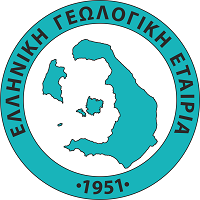Είναι γνωστό άτι το παγκόσμιο ενδιαφέρον είναι στραμμε'νο τα τελευταία χρόνια στις πιθανές καταστροφικές συνέπειες στην υγεία των ανθρώπων, των ζώων και των φυτών, λόγω της ρύπανσης του περιβάλλοντος με τοξικά χημικά στοιχεία. Η εφαρμοζόμενη μεθοδολογία για την εκτίμηση της έντασης και της χωρικής έκτασης αυτών των επικίνδυνων στοιχείων, καθώς και των επιπτώσεων τους, είναι η αναγνώριση των αλλαγών στα επίπεδα συγκέντρωσης τους στο επιφανειακό γήϊνο περιβάλλον, που είναι αντικείμενο μελέτης της εφαρμοσμένης γεωχημικής έρευνας. Συνεπώς, για να εξασφαλισθεί η ποιότητα ζωής στον πλανήτη μας, καθώς και η ισόρροπη ανάπτυξη στο μέλλον, απαιτείται η δημιουργία ενός υψηλής ποιότητας αρχείου πολυστοιχειακής γεωχημικής πληροφόρησης των επιφανειακών υλικών.
(EL)
It is a well-known fact that international interest, during the last few years, has been turned onto the possible hazardous consequences on the health of humans, animals and plants, because of environmental contamination by toxic chemical elements. The rapid rates of economic development and population increase on our planet have caused the aggravation of environmental problems, concerned with degradation from uncontrolled urban and industrial development, intensive agriculture and overexploitation of water resources. All these problems are affecting, on a global scale, the chemistry and sustainability of life support systems. The methodology applied to evaluate the intensity and area extent of these problems, as well as their effects, is concerned with the recognition of changes in the level of chemical elements on the earth's surface environment, which is the subject studied by the branch of science known as applied geochemistry. Consequently, to secure the sustainable development of our planet, it is required to create a high quality geographical information database of the chemistry of surface earth materials on which the well-balanced development of life is based. The Geological Survey of each country is participating in the project of "Global Geochemical Baselines", which aims to compile the multielement Global Geochemical Atlas, that is the chemical atlas of earth materials for 78 chemical elements by the year 2010. The European part of the project has started in 1998, and results will be published by the year 2004. Resulting information will be useful to agriculture, animal-rearing, epidemiology, urban planning, legislation and to policy- and decision-makers in general, which are all related to the sustainable development of our planet. Completion of this very significant project for effective management of the global surface environment in the new millennium, and for better quality of life of the present and all future generations, will depend on the availability of funds.
(EN)

